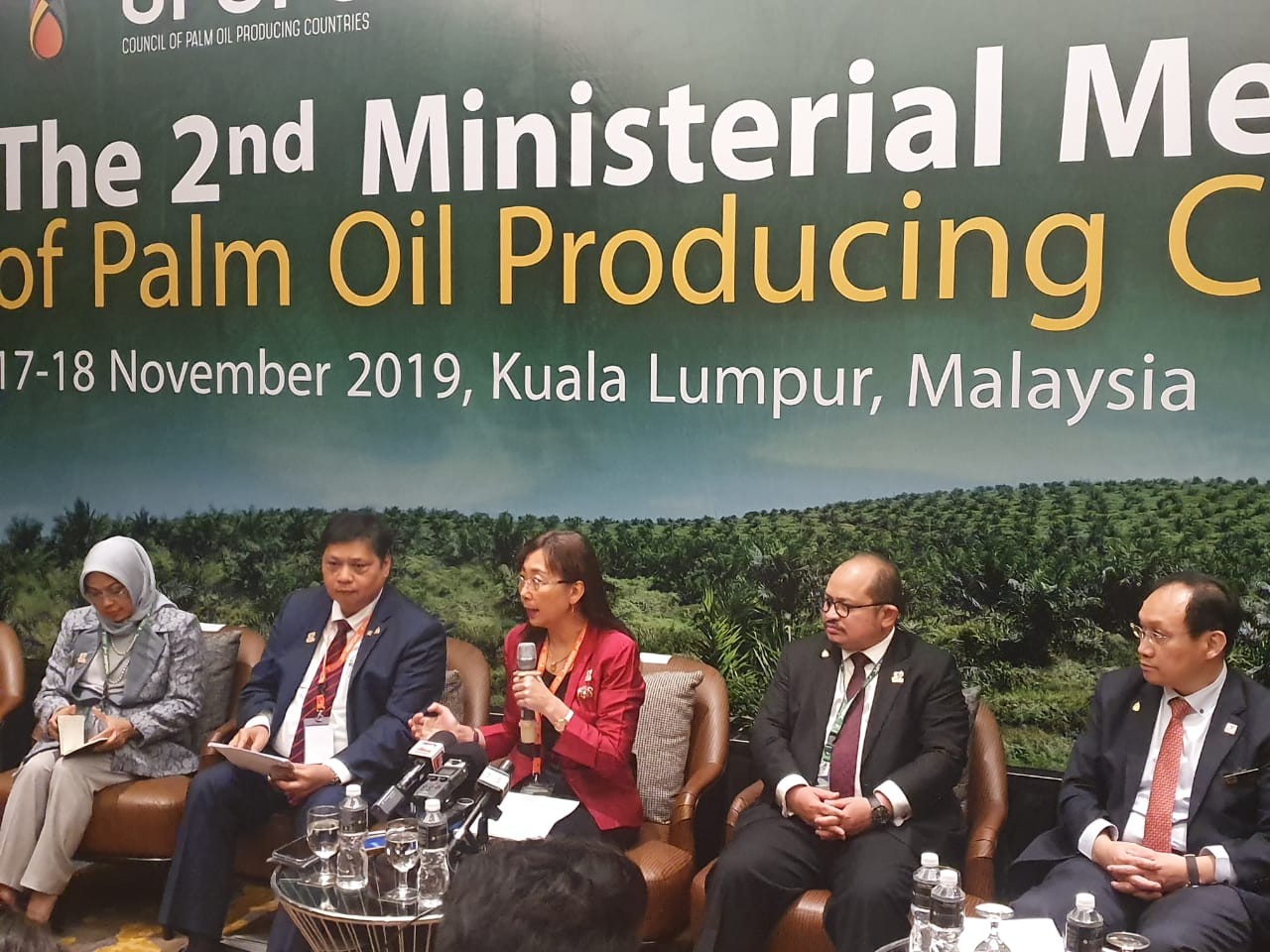WTO moves ahead with Indonesia’s complaint against EU
When a WTO member is to introduce a measure that is likely to be “trade disruptive”, they are required to inform relevant committees at the WTO. The EU did not do this when RED II was introduced.
Change text size
Gift Premium Articles
to Anyone

I
ndonesia’s World Trade Organization (WTO) complaint against the European Union trade barriers is moving ahead. It is a significant moment for the region’s largest agricultural export. Indonesia has successfully pushed for the WTO to form a panel in its complaint against the EU’s revised Renewable Energy Directive (RED II).
The Panel was announced Wednesday as part of a series of WTO meetings last week. The complaint was originally put forward by Indonesia in December 2019.
When a WTO member is to introduce a measure that is likely to be “trade disruptive”, they are required to inform relevant committees at the WTO. The EU did not do this when RED II was introduced. Indonesia and other palm oil producing countries expressed concern at several points throughout 2019.
After the complaint was put forward, Indonesia and the EU held a number of consultations to see if the matter could be resolved by other means. In March of this year, it became clear this would be impossible, and Indonesia requested the formation of a dispute settlement panel.
The forming of the panel last week was in many ways just a formality, but it is significant nonetheless.
RED II excludes the use of palm oil within the EU’s renewable fuel subsidy scheme. The scheme provides subsidies to fuels such as biodiesel sourced from different feedstocks. This includes biodiesel sourced from soybean, rapeseed and other vegetable oils. Palm-based biodiesel is the only vegetable oil-based fuel that has been excluded.
The EU is using the risk of “indirect use land change” (ILUC) to justify the ban. The ILUC risk methodology argues that any increased demand for palm oil grown in one place will indirectly cause deforestation in another place. The EU itself has stated that “ILUC cannot be observed or measured”. According to this logic, palm oil cannot be used in the RED scheme, regardless if it is certified as sustainable, or if the oil palm plantations were established a century ago.
The move follows a number of trade actions that the EU has taken against Indonesian biodiesel, including the first iteration of RED, its illegal imposition of antidumping duties, and new countervailing duties that were introduced at the end of last year.
A number of other countries – including Colombia, Thailand, Costa Rica and Guatemala – have joined the consultations. Malaysia has said repeatedly it will launch its own WTO action against the EU for the same measure, but it is not clear if or how a Malaysian case will be technically different from the Indonesian case.
After a panel has been formed, the terms of reference and panel members will be established within approximately one month, followed by meetings with the two main parties, and any third parties involved.
At the beginning of July some commentators expressed a level of optimism that a recent statement by EU Trade Commissioner Phil Hogan represented a change in direction for the EU on palm oil. Commissioner Hogan was responding to questions from a Polish MEP (Member of European Parliament) on palm oil. Hogan’s answer – that “the Commission will develop stronger ‘green deal diplomacy’ focused on convincing and supporting others to take on their share of promoting more sustainable development” – should be taken as a warning, rather than a signal of potential cooperation.
Similarly, Hogan sends a clear message on the setting of 3-MCPD (3- (monochloropropan-1.2-diol) levels by the EU: “Vegetable oils for the food chain shall respect these levels and all other relevant limits to be marketed in the EU.”
The EU’s new Farm to Fork Strategy, which is part of the European Commission’s ‘Green New Deal’, indicates that the EU is likely to stick to form and unilaterally develop its own standards on sustainability going forward. This has certainly been the case in its development and use of ILUC risk frameworks, and in its risk assessment of 3-MCPD.
Similarly, despite losing its WTO antidumping case against Indonesia, the bloc has maintained its faulty methodology. Last week the WTO has held up Russia’s complaint against the EU’s antidumping methodology and antidumping duties on ammonium nitrate fertilizer. This is the same methodology that was applied to Indonesian biodiesel exports. Russia launched its complaint against Brussels in 2016.
Although the IEU-CEPA (Indonesia-EU Comprehensive Economic Partnership Agreement) may by many as a means to export-led economic recovery for Indonesia, it is by no means a silver bullet. However, dire economic growth projections for the Euro area for 2021-2022 mean that some in Brussels will be looking to protect its markets, not liberalize them.
At the same time, some will be looking for economic recovery solutions. For the EU’s heavy-hitters such as Germany, this means access to growth export markets in ASEAN, where the economic outlook is brighter. ASEAN members should not be afraid to flex some muscle; Jakarta’s WTO action is a clear reminder that they are capable of doing so.
***
The writer is director of ITS Global and publisher of Palm Oil Monitor.









